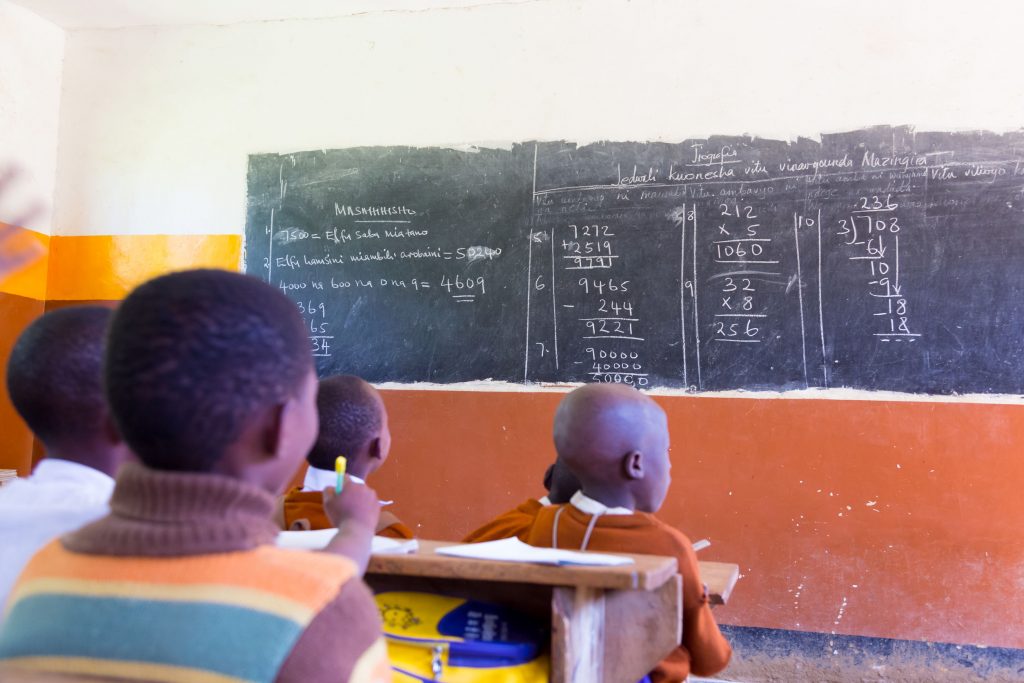- Keeping Lunch Boxes Healthy - September 14, 2023
- Chat GPT: The Future of Business Communication is Here! - February 16, 2023
- What are Cognitive Enhancers or Nootropic Supplements and How do They Work? - November 10, 2022
Poverty is all around us in Africa. It is sometimes so commonplace that we do not notice it. But it is here, destroying human lives, and bringing misery to all who suffer. The Brookings Institution reports that one in three Africans— 422 million people—live below the global poverty line. This makes up more than 70 percent of the world’s poorest people.
Let’s go beyond the statistics and find out what it really means to be poor?
- The reality of poverty is not being able to provide enough food for your children or pay for a hospital visit when a child is sick or injured.
- Girls in poverty are more likely to be victims of sexual abuse and sex trafficking
- Limited access to sanitation and clean water lead to poor hygiene practices and more disease, which hinder the ability of the poor to work or attend school.
- Poor people are helpless when something like the Covid-19 epidemic arrives. They have no reserves to fall back upon.
- Poor people lack hope in the future because they have nothing to look forward to, just the hideous daily grind of staying alive.
- Poverty results in damage to the natural environment in which the poor live and this increases the impact of floods and other natural disasters.
Poverty in Africa results in hunger, epidemics of disease such as malaria, cholera, Aids and high infant death rates, and a lowering of the overall living standards in the African countries.
We acknowledge the untenable state of being poor, but we cannot leave it there. How do we break the cycle of poverty? What are the best ways of reducing poverty without giving handouts.
James Urdang of Education Africa puts it like this.
“How do you bring people into the economy? It’s through education. How do people rise out of poverty into the middle class? Education.”
Let’s look at global approaches to poverty reduction.
The Sustainable Development Goals [SDGs] were put together by the countries of the United Nations to achieve a better and more sustainable future for all. They seek to remediate the global challenges we face; specifically poverty, inequality, climate change, environmental degradation, peace and justice. The very first goal of the Sustainability Development Goals addresses poverty:
Goal 1:
Eradicate Extreme Poverty and Hunger
Target 1.A: Halve, between 1990 and 2015, the proportion of people whose income is less than $1.25 a day
Target 1.B: Achieve full and productive employment and decent work for all, including women and young people
Target 1.C: Halve, between 1990 and 2015, the proportion of people who suffer from hunger
Poverty has many unfortunate consequences for those in its grip:
- limited access to education
- lack of income
- hunger and malnutrition
- lack of participation in decision-making
- social discrimination and exclusion
- unsustainable livelihoods.
Getting rid of poverty is an ethical, social, political and economic imperative for all of us. The actions of ridding the world of poverty should not be something the advantaged ‘do’ to the disadvantaged.
The work of poverty reduction has to involve the empowerment of the poor in all aspects of political, economic and social life, especially in the design and implementation of policies that affect the poorest and most vulnerable groups of society. An integrated strategy must result in equitable distribution of wealth and income and social protection coverage.
Just how powerful can education be in addressing poverty? The Voice of America reports that according to the World Bank, education is one of the most powerful instruments for reducing poverty and inequality, and lays a foundation for sustained economic growth. For every extra school year completed, a worker’s earnings increase by 10 percent.
The UNESCO Global Education Monitoring Report and the Education Commission’s Learning Generation Report provide important evidence on the impact of education on an individual’s earnings and economic growth. Below are some of the most compelling data from their report that illustrate these links.
| 1. Education reduces poverty |
| 171 million people could be lifted out of extreme poverty if all children left school with basic reading skills. That’s equivalent to a 12% drop in the world total. |
| Absolute poverty could be reduced by 30% from learning improvements outlined by the Education Commission. |
| 2. Education increases individual earnings |
| Education increases earnings by roughly 10% per each additional year of schooling. |
| For each $1 invested in an additional year of schooling earnings increase by $5 in low-income countries and $2.5 in lower-middle-income countries. |
| 3. Education reduces economic inequalities |
| If workers from poor and rich backgrounds received the same education, disparity between the two in working poverty could decrease by 39%. |
| 4. Education promotes economic growth |
| Educational attainment explains about half of the difference in growth rates between East Asia and Sub-Saharan Africa between 1965 and 2010. |
| In 2050, GDP per capita in low-income countries would be almost 70% lower than it would be if all children were learning. |
| Increasing tertiary attainment by one year on average would increase sub-Saharan Africa’s long-term GDP by 16%. |
| 5. Education helps save the planet* |
| *What does that have to do with poverty? Hear us out… |
| Overall climate change and the resulting increased frequency of natural disasters and reduced agricultural output could cast as many as 122 million people into poverty by 2030. |
| The creation of green industries will rely on high-skilled, educated workers. |
| Agriculture contributes 1/3 of all greenhouse gas emissions. Primary and secondary education can provide future farmers with critical knowledge about sustainability challenges in agriculture. |
This argument is developed further by Miriam Altman, a Commissioner with the National Planning Commission in the Presidency in South Africa. She is unrepentant that very little beats tertiary education as a poverty-reducing investment. She argues that more than 20% of the South African population could be lifted out of poverty by 2030.
“Tertiary education is the most critical asset that opens up opportunities for low-income households to lift themselves out of poverty,” says Dr Altman.
She continues: “There is a two-way relationship between quality education output and job creation. A growing economy will absorb a more qualified and capable labour force. And a more qualified and capable labour force creates a greater incentive for firms to invest in labour-absorbing activities.”
Dr Altman develops her argument further: “The National Development Plan (NDP) proposes that, by 2030, about 400,000 university degrees should be produced annually so that one in six of the population has a minimum of a bachelor’s-equivalent degree.
“The unemployment rate for those with university degrees and diplomas is about 12% and 22% respectively, much lower than for those without these qualifications. The average starting salary for a diploma or degree graduate is about two to four times higher than the poverty line. And these earnings normally rise by about four times over the following 10-20 years.”
Dr Altman makes the point that when a young person from a low-income community gets access to a higher education opportunity it is the single most important course to reduce poverty and inequality and promote intergenerational asset accumulation and class transformation.
The traditional methods of securing tertiary education will mean that young black graduates will be saddled with extensive debt just as they are attempting to lift off in their careers. Novel ways of getting around this will have to be found.
In Dr Altman’s view, a programme routing poor students into higher education could be the most powerful approach to achieving shared prosperity.
How can higher education best be used to tackle poverty?


The World Economic Forum makes the case that strong higher education systems are an essential component of poverty reduction. Countries need well-trained professionals to staff public services, as well as technological innovators and researchers to tackle local and national development challenges. However, the WEF argues that higher education won’t have a real impact on countries’ development unless three significant things take place.
- Universities will have to function together as part of a coherent system in the public interest.
- Access to higher education must be equitable and allow admission for talented students from disadvantaged backgrounds.
- Teaching, research and community engagement must address key local and national development needs.
It’s the second of the three that holds our attention here. This is where private institutions can step into the gap. Private institutions have less institutional baggage than state funded institutions, they also have more flexible admission requirements, while protecting the quality of the end qualification. Added to this is the global trend to on-line tertiary education. Online solutions, provided a solution can be found for internet access, allow quality education to be taken to students. They can study where they live. This reduces commuting costs as well as board and lodging. The student is not lost to their community and can continue in family roles without having to absent themselves to study.
Universities will have to address both poverty reduction and development for the benefit of society, by providing high-quality teaching and research in the public interest, and engage with local communities.
It has been argued that if Africa increases its stock of higher education by one additional year (on average) it will raise the per capita GDP growth rate by 0.39 percentage points in the first year. This higher rate of technological growth can be sustained until Africa catches up with the rest of the world.
As Dr Altman puts it, there is very little to beat tertiary education as a mechanism to reduce poverty and provide citizens with dignity and a worthy life.
Regenesys Business School believes that education is the greatest equaliser in addressing the social and economic disparity in South Africa and the African continent. The Business School serves society by uplifting people out of poverty and empowering them to live successful lives with purpose through Education.
Through the Regenesys Foundation, they have created a unique education for all [ED4ALL] programme aims to disrupt traditional models of education. It uses technology to deliver online life-changing programmes from as little as R500 per month. Students pay back their study fees once they begin earning. The initiative is open to those who truly are poor, but have the aptitude and desire to study further.
The Ed4All programme creates the opportunity for you or your organisation to sponsor a candidate as they launch their online university career.
End Note
High youth unemployment rates remain one of the greatest challenges to economic transformation in South Africa. For as little as R500 per month, you could provide a young South African with an opportunity to attain the skills and qualifications needed to gain entry to the jobs market, transforming not only their lives but the lives of their family and the greater community.
Your support will enable a candidate to secure a better future, thereby accelerating economic transformation in vulnerable communities one person at a time.
Read also: Education For All: Access to the kind of education that builds the economy



12 Comments
Hi there, just wanted to say, I enjoyed this article. It was
inspiring. Keep on posting!
I visited various websites however the audio feature for audio songs existing at this web site is actually superb.
Hi there, I read your blog regularly. Your writing style
is witty, keep doing what you’re doing!
This design is steller! You certainly know how to keep a reader amused.
Between your wit and your videos, I was almost moved
to start my own blog (well, almost…HaHa!) Excellent job.
I really loved what you had to say, and more than that, how you presented
it. Too cool!
What’s up to all, how is all, I think every one is
getting more from this website, and your views are nice for new viewers.
I think this is among the most important information for me.
And i’m glad reading your article. But want to remark on some general things, The website style is
wonderful, the articles is really excellent : D. Good job, cheers
Hi, this weekend is nice designed for me, for the reason that this occasion i am reading this impressive informative article here at my home.
Keep this going please, great job!
I like the valuable information you provide to your articles.
I will bookmark your blog and take a look at again here
frequently. I am somewhat certain I’ll learn lots of new stuff right right here!
Best of luck for the next!
I don’t even know how I ended up here, but I thought this post was great.
I do not know who you are but definitely you are going to a
famous blogger if you are not already 😉 Cheers!
Hi there, I discovered your web site via Google whilst searching for a comparable
topic, your website came up, it looks great. I’ve bookmarked it in my google bookmarks.
Hello there, just was aware of your weblog thru Google, and found that
it is really informative. I am gonna watch out for brussels.
I’ll be grateful when you proceed this {in future}.
A lot of other folks will be benefited from your writing.
Cheers!
Right on my man!